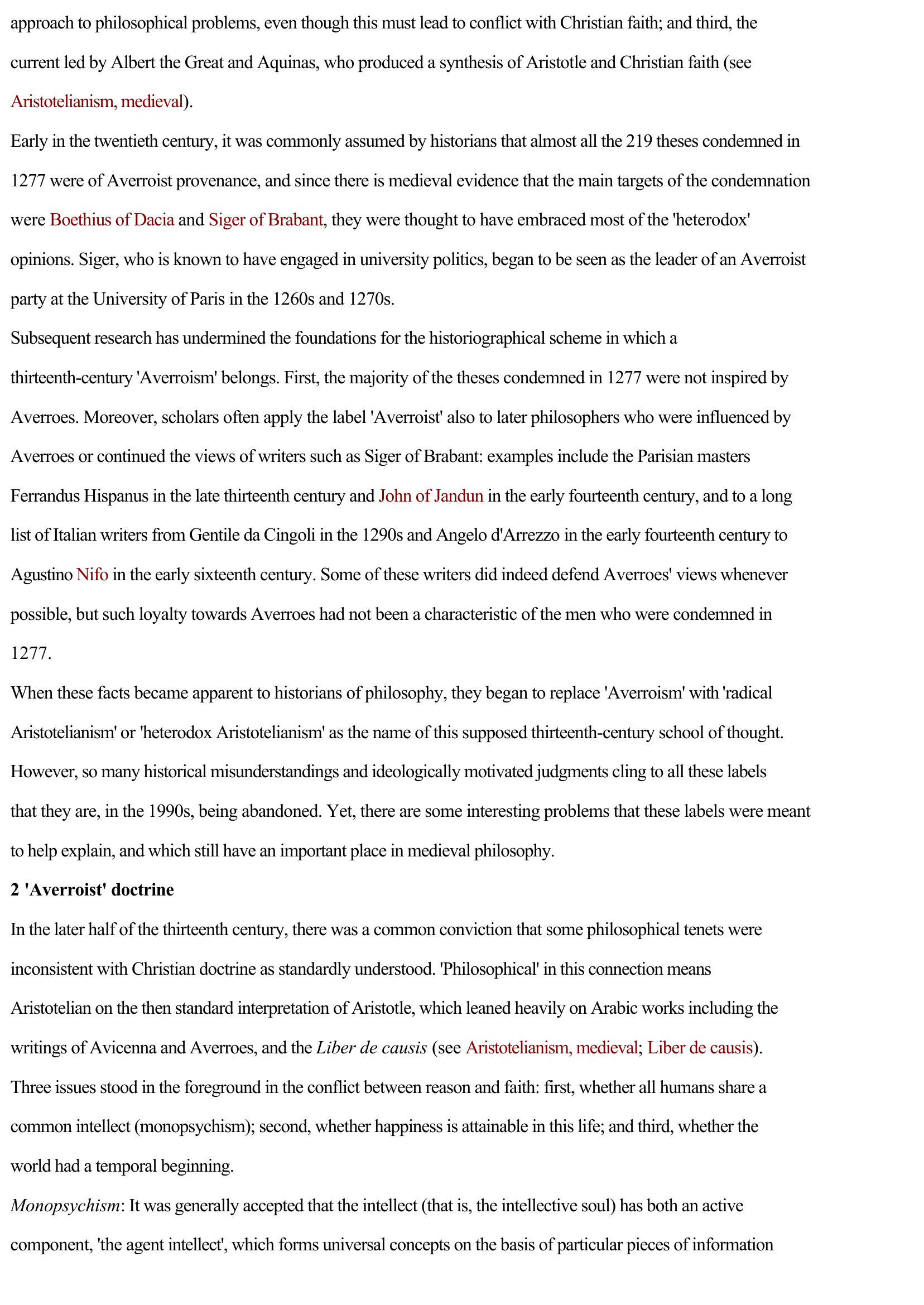Averroism
Publié le 22/02/2012

Extrait du document
«
approach to philosophical problems, even though this must lead to conflict with Christian faith; and third, the
current led by Albert the Great and Aquinas, who produced a synthesis of Aristotle and Christian faith (see
Aristotelianism, medieval ).
Early in the twentieth century, it was commonly assumed by historians that almost all the 219 theses condemned in
1277 were of Averroist provenance, and since there is medieval evidence that the main targets of the condemnation
were Boethius of Dacia and Siger of Brabant , they were thought to have embraced most of the 'heterodox'
opinions.
Siger, who is known to have engaged in university politics, began to be seen as the leader of an Averroist
party at the University of Paris in the 1260s and 1270s.
Subsequent research has undermined the foundations for the historiographical scheme in which a
thirteenth-century 'Averroism' belongs.
First, the majority of the theses condemned in 1277 were not inspired by
Averroes.
Moreover, scholars often apply the label 'Averroist' also to later philosophers who were influenced by
Averroes or continued the views of writers such as Siger of Brabant: examples include the Parisian masters
Ferrandus Hispanus in the late thirteenth century and John of Jandun in the early fourteenth century, and to a long
list of Italian writers from Gentile da Cingoli in the 1290s and Angelo d'Arrezzo in the early fourteenth century to
Agustino Nifo in the early sixteenth century.
Some of these writers did indeed defend Averroes' views whenever
possible, but such loyalty towards Averroes had not been a characteristic of the men who were condemned in
1277.
When these facts became apparent to historians of philosophy, they began to replace 'Averroism' with 'radical
Aristotelianism' or 'heterodox Aristotelianism' as the name of this supposed thirteenth-century school of thought.
However, so many historical misunderstandings and ideologically motivated judgments cling to all these labels
that they are, in the 1990s, being abandoned.
Yet, there are some interesting problems that these labels were meant
to help explain, and which still have an important place in medieval philosophy.
2 'Averroist' doctrine
In the later half of the thirteenth century, there was a common conviction that some philosophical tenets were
inconsistent with Christian doctrine as standardly understood.
'Philosophical' in this connection means
Aristotelian on the then standard interpretation of Aristotle, which leaned heavily on Arabic works including the
writings of Avicenna and Averroes, and the Liber de causis (see Aristotelianism, medieval ; Liber de causis ).
Three issues stood in the foreground in the conflict between reason and faith: first, whether all humans share a
common intellect (monopsychism); second, whether happiness is attainable in this life; and third, whether the
world had a temporal beginning.
Monopsychism : It was generally accepted that the intellect (that is, the intellective soul) has both an active
component, 'the agent intellect' , which forms universal concepts on the basis of particular pieces of information.
»
↓↓↓ APERÇU DU DOCUMENT ↓↓↓

































